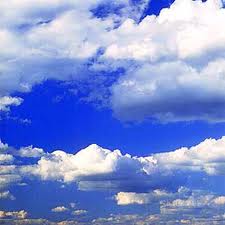 My column at The Daily Blog this week looks at last week’s call from the Millennium Alliance for Humanity & the Biosphere (a cross-disciplinary group of hundreds of top scientists) for urgent action to address climate change, extinctions, loss of ecosystem diversity, pollution, and human population growth and resource consumption. To call it a big challenge would be an understatement… Comments over there please.
My column at The Daily Blog this week looks at last week’s call from the Millennium Alliance for Humanity & the Biosphere (a cross-disciplinary group of hundreds of top scientists) for urgent action to address climate change, extinctions, loss of ecosystem diversity, pollution, and human population growth and resource consumption. To call it a big challenge would be an understatement… Comments over there please.
Tag: ecosystems
Not a pretty picture: recent science summarised
 A valuable review, Climate Science 2009-2010, has just been published by the World Resources Institute. It’s a summary of major peer-reviewed research in climate change science and technology during those two years. Aimed at policymakers, the NGO community, and the media, it offers succinct summaries of the findings of a wide array of scientific papers, a short discussion of the implications of each paper, and brief overviews along the way of where the research is pointing.
A valuable review, Climate Science 2009-2010, has just been published by the World Resources Institute. It’s a summary of major peer-reviewed research in climate change science and technology during those two years. Aimed at policymakers, the NGO community, and the media, it offers succinct summaries of the findings of a wide array of scientific papers, a short discussion of the implications of each paper, and brief overviews along the way of where the research is pointing.
It’s 48 pages in length, not a quick read but tailored for easy comprehension for anyone with a general lay understanding of climate science. A sample list of some of the findings is provided at the start, but the full survey is well worth reading through. The range of papers is a reminder of how much scientific work is being done and how the full picture is built from many studies and a great variety of detailed investigations. The review is restrained in its drawing of implications from the studies, often pointing to the need for further investigation and certainly not hyping any of the results. Nevertheless it’s apparent that the recent research continues to reveal grim prospects for humanity as emissions continue to rise.
Continue reading “Not a pretty picture: recent science summarised”
Jolting Contrasts
 I read this morning yet another dismal report on the extraordinary lengths to which Republican politicians hopeful of nomination as presidential candidate in America are going in their denial of climate change. Then I watched an excellent PBS television interview with a couple of intelligent and knowledgeable American scientists which regular Hot Topic commenter Bill had recommended.
I read this morning yet another dismal report on the extraordinary lengths to which Republican politicians hopeful of nomination as presidential candidate in America are going in their denial of climate change. Then I watched an excellent PBS television interview with a couple of intelligent and knowledgeable American scientists which regular Hot Topic commenter Bill had recommended.
It was an extraordinary juxtaposition, all the more surreal because both relate to Texas. How does a country like the US, with scientists and scientific institutions so advanced, manage to throw up leading politicians so wilfully ignorant? (That’s a rhetorical question unless your answer has nothing to do with money.) Continue reading “Jolting Contrasts”
No Penguin Café when the ice melts
 At Yale Environment 360 Fen Montaigne provides a fascinating, if disturbing, report on the findings of scientists working on the effects of sea ice retreat on the polar marine food chain. Montaigne is the author of the book Fraser’s Penguins which I reviewed earlier this year and of an earlier article at Yale Environment about the melting at the periphery of the Antarctic ice dome discussed here.
At Yale Environment 360 Fen Montaigne provides a fascinating, if disturbing, report on the findings of scientists working on the effects of sea ice retreat on the polar marine food chain. Montaigne is the author of the book Fraser’s Penguins which I reviewed earlier this year and of an earlier article at Yale Environment about the melting at the periphery of the Antarctic ice dome discussed here.
This is how it has been in the Antarctic Peninsula for a very long time:
“Marine algae, or phytoplankton, trapped in the ice and floating in the water column have burst into life as the sun catalyzes the photosynthetic process. In addition, melting freshwater from the sea ice formed a buoyant cap atop the heavier salt water, trapping the algae in the upper layer of the ocean, where it was exposed to the sun’s rays and bloomed.
“These seasonal phytoplankton blooms have fed the entire food web around Antarctica: shrimp-like krill and fish ate the phytoplankton, and virtually everything else — from Adélie penguins to humpback whales — ate the krill, which are part of the crustacean family.”
An immediate halt to CO2 emissions is an absolute necessity…
[vimeo]18924324[/vimeo]
…if we are to maintain the health of ocean ecosystems, says Professor Ove Hoegh-Guldberg, Director of the Global Change Institute at the University of Queensland in this video presentation, given to a symposium at the recent Our Changing Oceans conference in Washington DC. It’s sobering viewing. Here are the primary messages from the symposium:
- There is a large body of empirical evidence indicating that anthropogenic climate change is substantially impacting ocean ecosystems. The evidence comes from many taxa, locations and habitats.
- Changes in biological function in the ocean caused by anthropogenic climate change go far beyond death, extinctions and habitat loss: fundamental processes are being altered, community assemblages are being reorganized and ecological surprises are likely.
- These changes will have significant consequences for people.
Perhaps even more importantly, Ove suggests that 450 ppm atmospheric CO2 is not a comfortable target. Hat tip to Ove’s co-author John Bruno for posting this at Skeptical Science earlier today. See also Ove’s excellent climateshifts.org blog.
